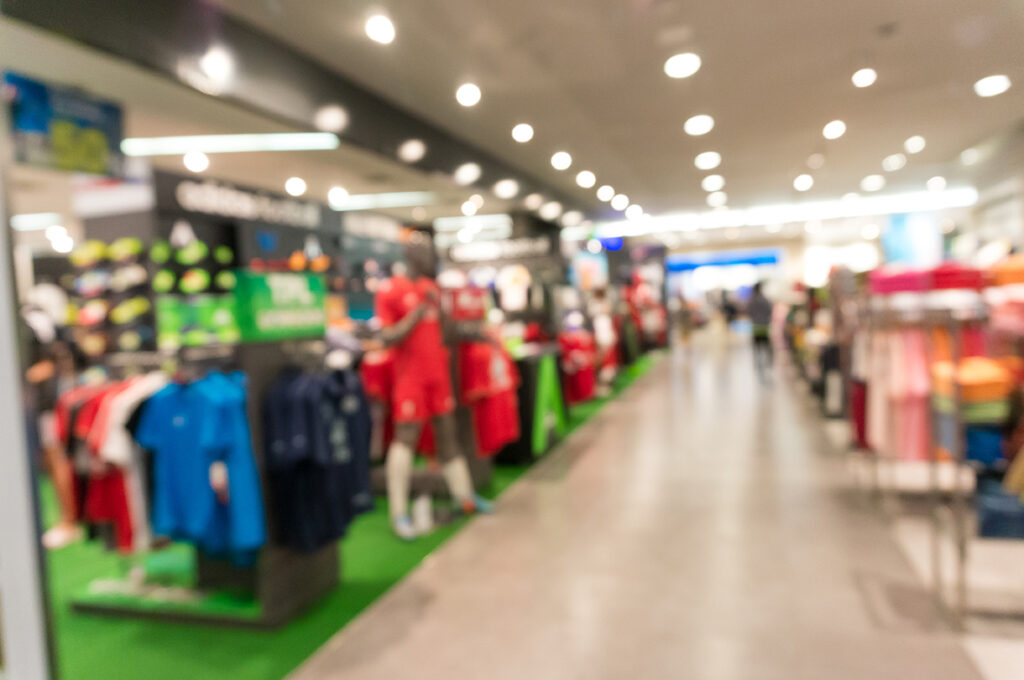It’s hard to imagine a world without easy access to an Old Navy for a new t-shirt, a Starbucks at every turn, and easy access to fresh ingredients at a grocery store—no matter where you may travel. But 2020 proved that even massive retail chains with national presence weren’t immune to the long-term effects of COVID-19. And some reports predict thousands more closures this year.

But retail sales are on the rise, and the steady roll out of vaccinations is well underway. So what does that mean for our favorite national brands? They won’t be gone for good, but they may no longer be the sure bet for landlords they once were.
Here are trends to watch among national chains in 2021, as well as the takeaways you should know when choosing tenants:
Putting on a Show
Retailers faced massive supply chain disruptions in 2020, on top of closures and limited access to shoppers. But shoppers still crave the experience of shopping. The solution—which may just become the new norm—are curated stores with a smaller inventory, or none at all.
Retailers like Warby Parker have opened showrooms where customers can preview merchandise they will ultimately purchase online. Ikea, well known for their showrooms, has started opening smaller stores as well, which drop the warehouse portion of square footage.
Key takeaway: Big brands may cater to the masses—but make sure they have plans for keeping shoppers happy, even when supplies are limited.
Live Studio Audience
Live streaming brings the private shopping experience to the everyday shopper—and for some brands it’s been a powerful revenue driver. Beauty giant Estee Lauder hosted 1 million virtual try-on sessions with clients last year.
Live streaming can be one-on-one or broadcast to a large group, and it typically includes a store associate guiding customers through the store’s inventory, making the sale, and packaging for pickup or delivery. Clean and organic BeautyCounter will open a new store this year with an in-house studio specifically for live streaming events.
Key takeaway: National chains should have the manpower and financial backing to make live stream events a free amenity for their shoppers.
Fan Club Upgrade
Loyalty programs are nothing new, but a half-off coupon on a member’s birthday may not cut it anymore. Building strong relationships is paramount to a brand’s success in a marketplace where options are plentiful.
The famous Nordstrom annual sale now hosts private events for their elite shoppers, as well as first access to discounted merchandise. Nike has upped the game by opening NikePlus, a members-only zone in-store. Members, who can join free of charge, get first looks at new inventory and other experiential perks.
Key takeaway: Brand loyalty shouldn’t be taken for granted. Look for national brands who go the extra mile for their shoppers with special events and perks.
Shopping Networks
Small brands have been making big disruptions over the past few years, but for smart chains that’s no problem. Partnerships with small up-and-coming brands, as well as local favorites, can bring fresh air to a chain store.
Costco is a great example of a big box store with small brand appeal. Their partnership with Casper mattress not only provides a brick-and-mortar experience for an online seller, but it also backs the newer brand with Costco’s stamp of approval.
Key takeaway: Chains should be thinking outside the big box and looking to connect with smaller brands and local upstarts.
On Every Channel
Possibly the biggest explosion of growth in 2020 was the need for omnichannel presence. Brands need to be ready for purchase online and on social media, equipped with their own apps, quick with contactless delivery, and of course stocked for in-person shopping as well.
Customers are looking for frictionless shopping, where they can check availability on an app, hold it for purchase, and arrive for pick-up at their convenience. Target’s Circle app, free membership program, Red card, and easy payment and pickup options are a perfect example of customers’ modern retail expectations being fulfilled well.
Key takeaway: The importance of technology that facilitates an easy and convenient purchase cannot be understated. Big brands should come equipped with big capabilities for their shoppers.
2020 ushered in a retail revolution, and stores and shoppers will continue to evolve in 2021. Looking for national brands who can keep up with the public's demands? Retailsphere can aid you in finding retailers that are ready to check the boxes. Schedule a no-obligation demo today.